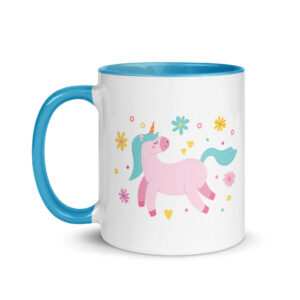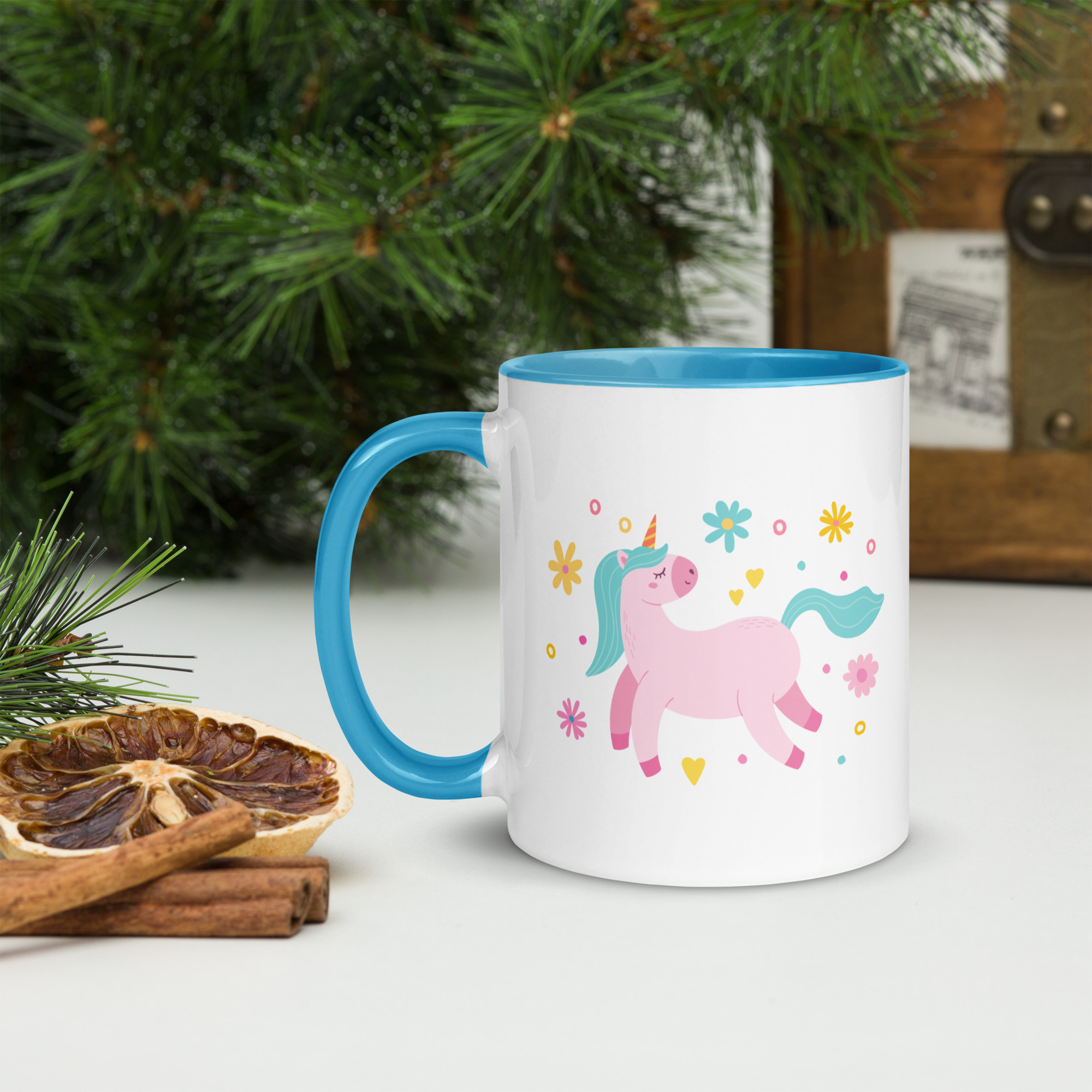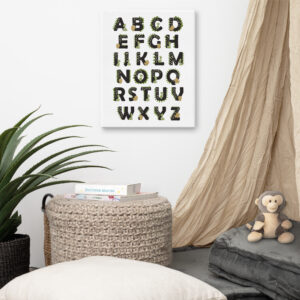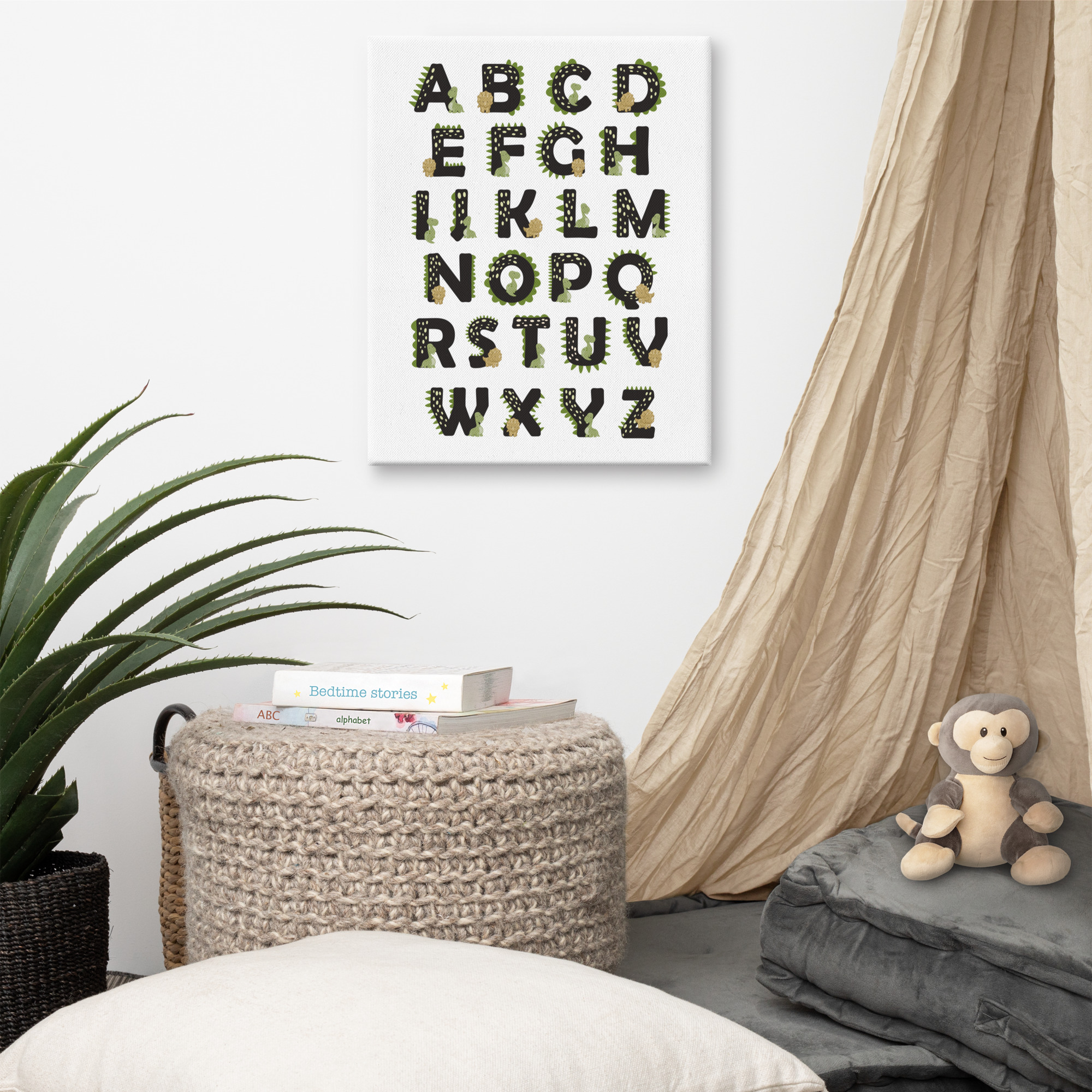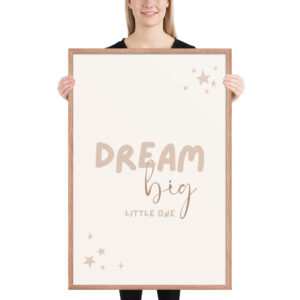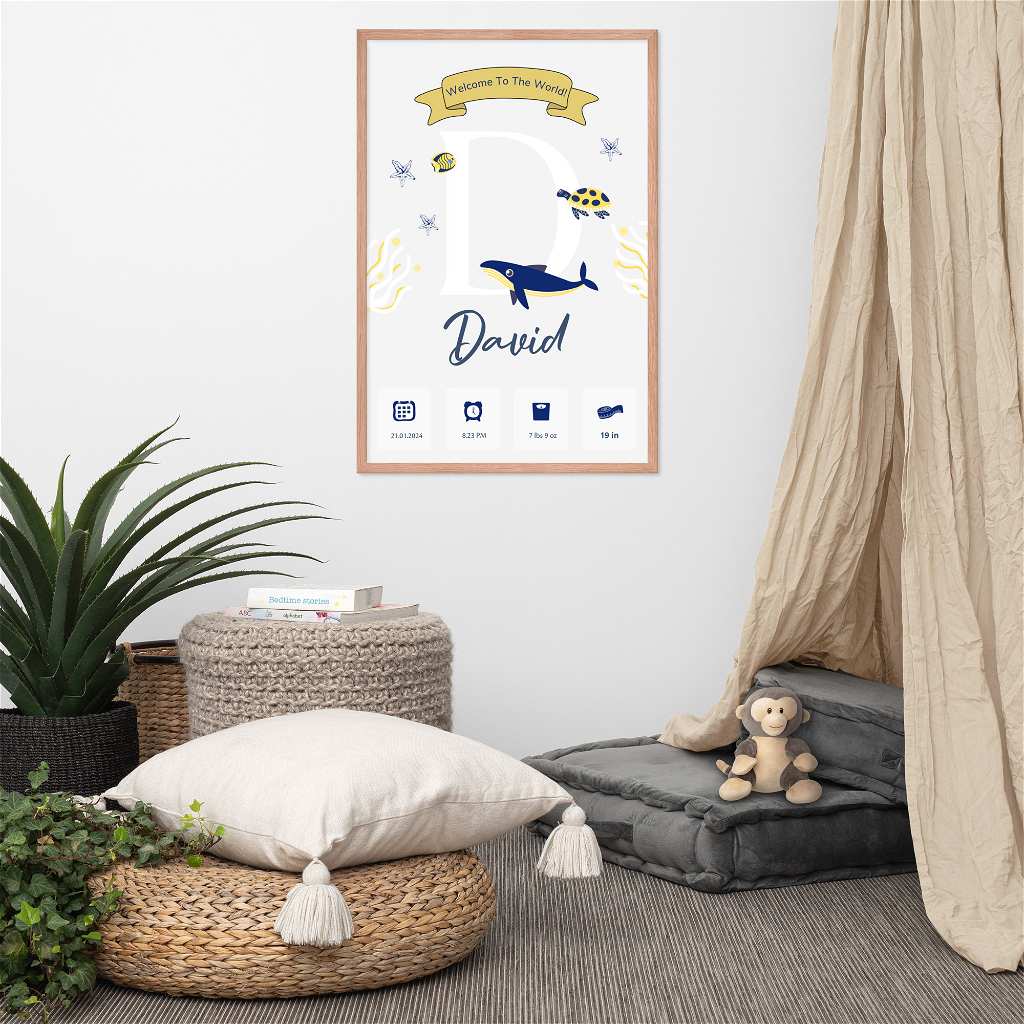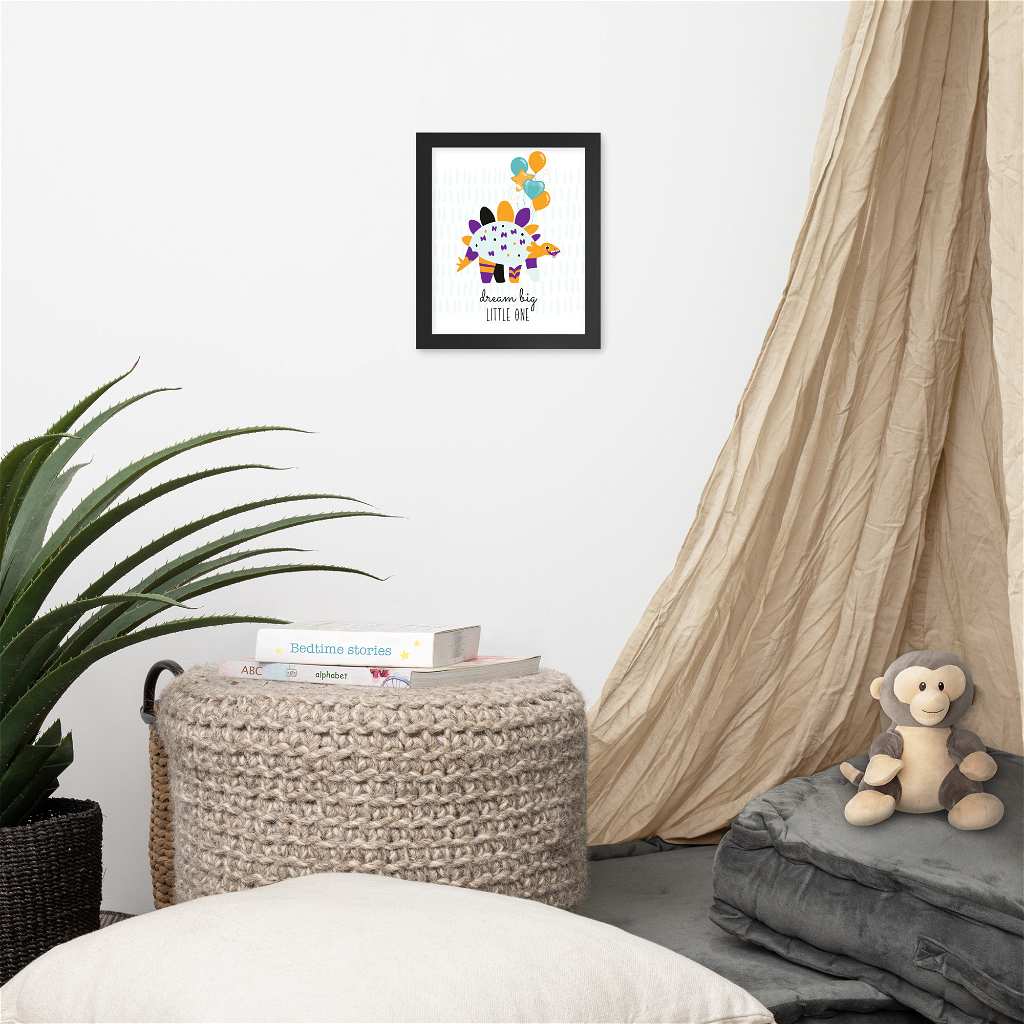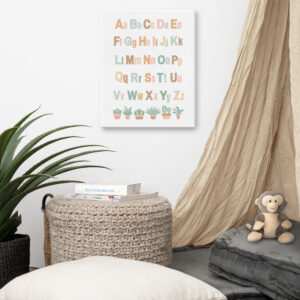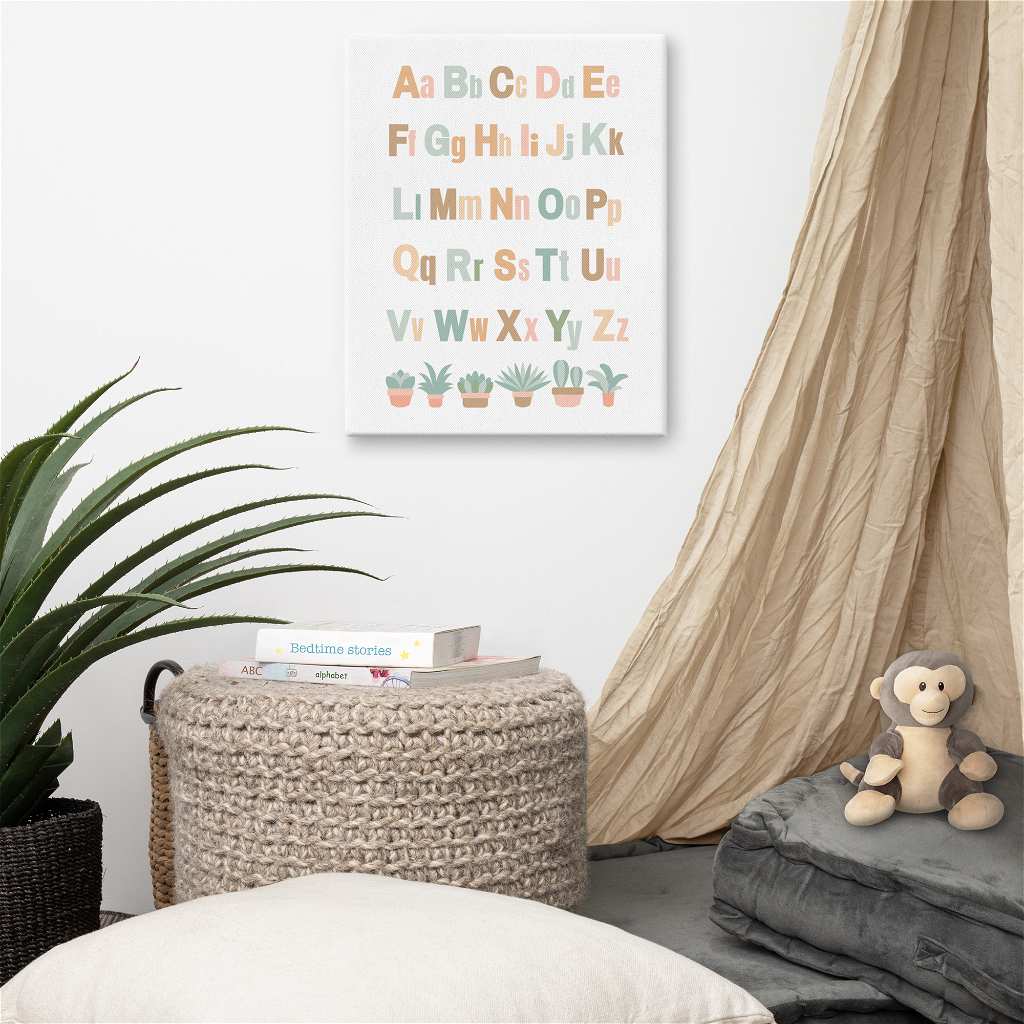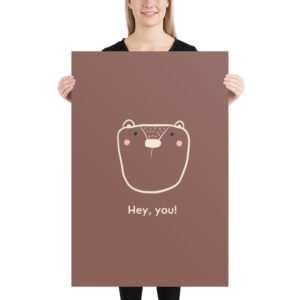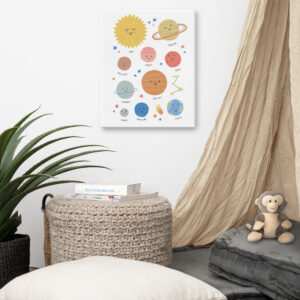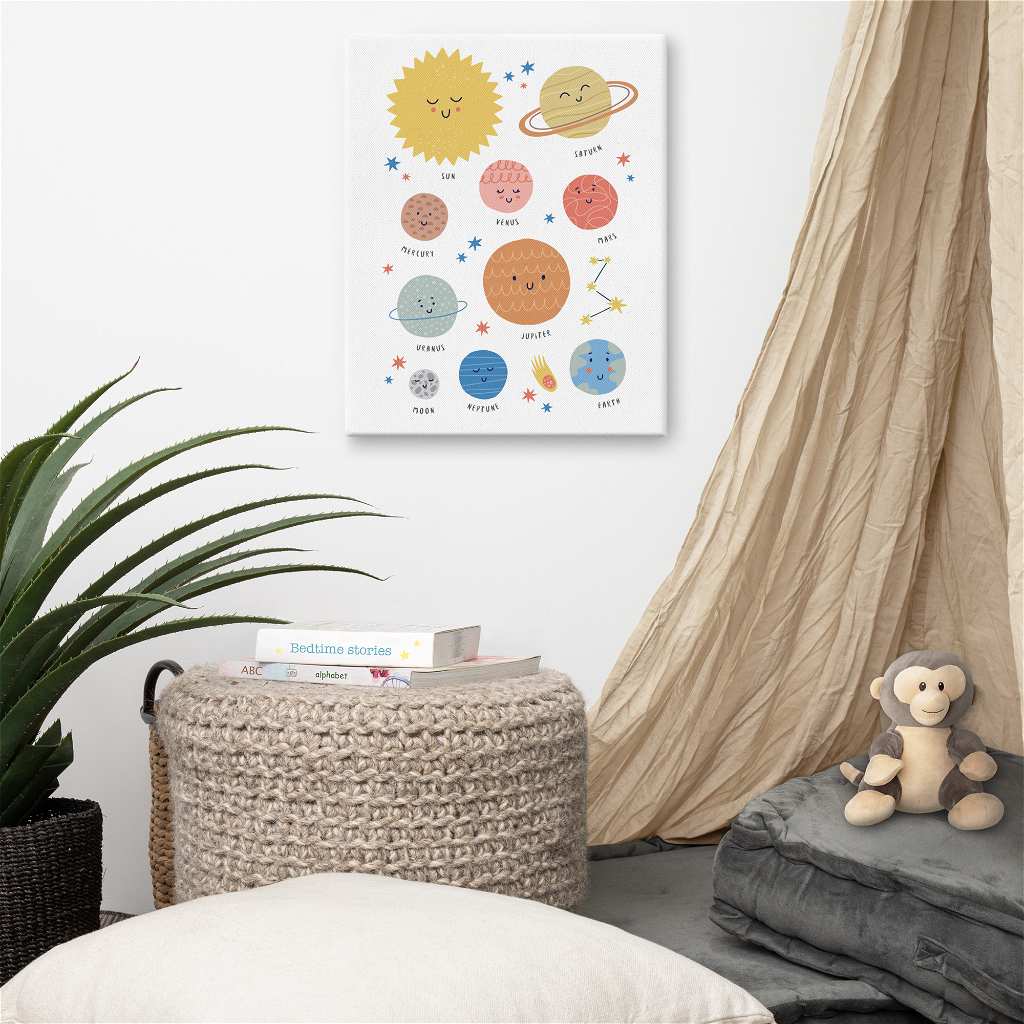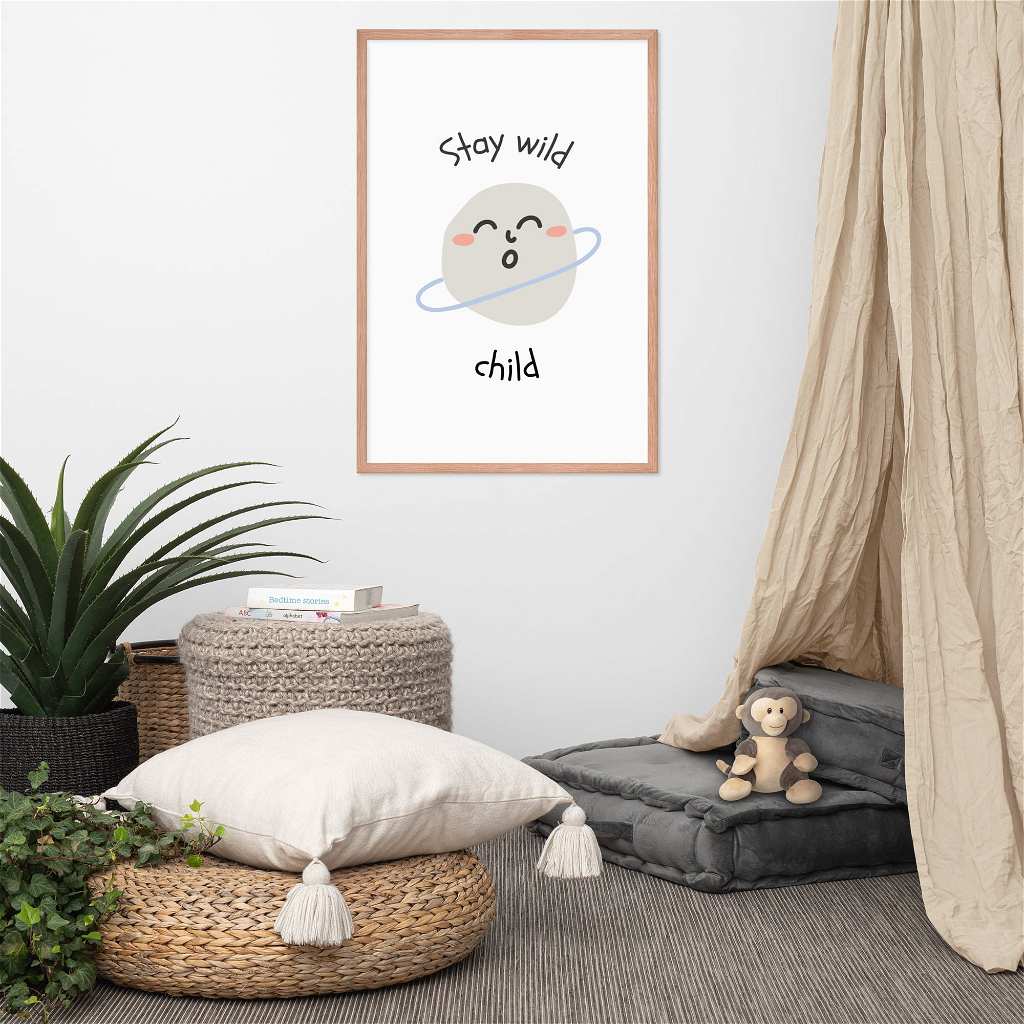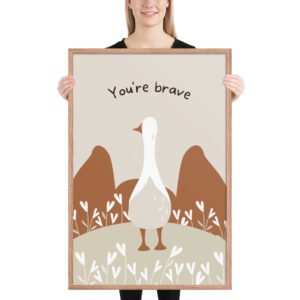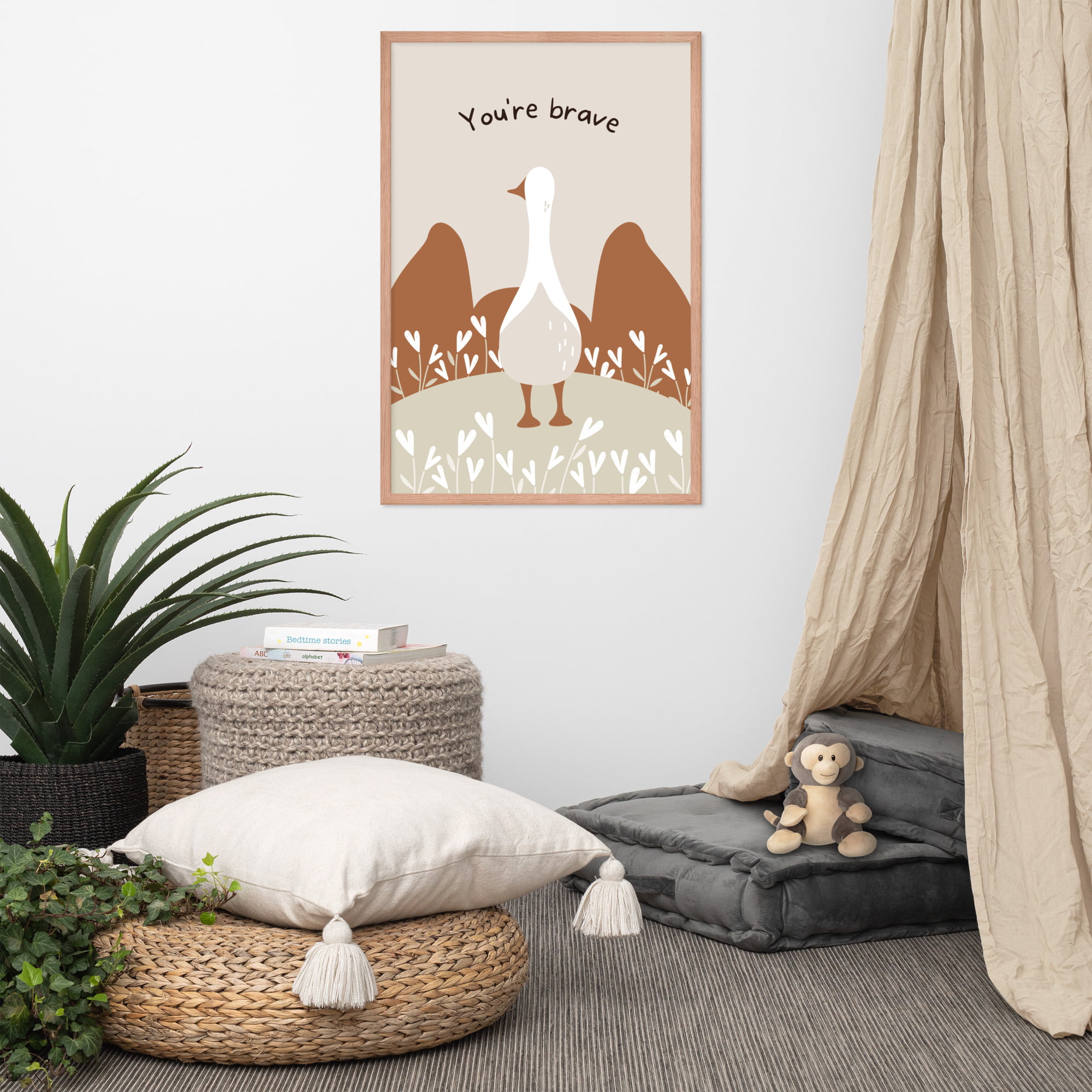Empty cart
No products in the cart.
Return to Shop
Gifts for Kids
Make kids’ dreams come true with personalized gifts that ignite their imagination. Whether it’s a birthday, holiday, or just because, our custom prints add a whimsical and personal touch to every gift. Explore our selection and find the perfect way to delight and inspire the little ones in your life.
Showing 1–24 of 52 results
See
“Colorful Cute Unicorn” Kids Mug
$15.50 – $16.50 Dark Blue Dark green Golden Yellow Green Orange Pink Black Blue Red Yellow+8Show more
Product Details:
• Ceramic
• 11 oz mug dimensions: 3.79″ (9.6 cm) in height, 3.25″ (8.3 cm) in diameter
• 15 oz mug dimensions: 4.69″ (11.9 cm) in height, 3.35″ (8.5 cm) in diameter
• Colored rim, inside, and handle
• Dishwasher and microwave safe
“Dinosaur Alphabet” Nursery Canvas Print
$50.50 – $104.00Product Details:
• Acid-free, PH-neutral, poly-cotton base
• 20.5 mil (0.5 mm) thick poly-cotton blend canvas
• Canvas fabric weight: 13.9 oz/yd2(470 g/m²)
• Fade-resistant
• Hand-stretched over solid wood stretcher bars
• Matte finish coating
• 1.5″ (3.81 cm) deep
• Mounting brackets included
“Dinosaur Alphabet” Nursery Framed Poster
$32.00 – $125.00 Red Oak Black White+1Show more
Product Details:
• Ayous wood .75″ (1.9 cm) thick frame from renewable forests
• Paper thickness: 10.3 mil (0.26 mm)
• Paper weight: 189 g/m²
• Lightweight
• Acrylite front protector
• Hanging hardware included
“Dream Big Little One” Nursery Framed Poster
$46.50 – $124.50 Red Oak Black White+1Show more
Product Details:
• Ayous wood .75″ (1.9 cm) thick frame from renewable forests
• Paper thickness: 10.3 mil (0.26 mm)
• Paper weight: 189 g/m²
• Lightweight
• Acrylite front protector
• Hanging hardware included
“Dream Big” Nursery Framed Poster
$31.50 – $124.00 Red Oak Black White+1Show more
Presenting the “Dream Big” Nursery Framed Poster, an exquisite addition to our collection of Nursery Framed Posters. This piece is more than just a decorative element; it’s a source of inspiration and a sophisticated addition to your child’s nursery, combining the elegance of nursery art prints with the timeless message of aspiration and hope. The […]
“Dream Big” Nursery Framed Poster
$31.50 – $124.00 Red Oak Black White+1Show more
Product Details:
• Ayous wood .75″ (1.9 cm) thick frame from renewable forests
• Paper thickness: 10.3 mil (0.26 mm)
• Paper weight: 189 g/m²
• Lightweight
• Acrylite front protector
• Hanging hardware included
“Dream Big” Nursery Poster
$9.50 – $30.50Product Details:
• Paper thickness: 10.3 mil
• Paper weight: 189 g/m²
• Opacity: 94%
• ISO brightness: 104%
“Educational Alphabet” Nursery Canvas Print
$50.50 – $104.00Product Details:
• Acid-free, PH-neutral, poly-cotton base
• 20.5 mil (0.5 mm) thick poly-cotton blend canvas
• Canvas fabric weight: 13.9 oz/yd2(470 g/m²)
• Fade-resistant
• Hand-stretched over solid wood stretcher bars
• Matte finish coating
• 1.5″ (3.81 cm) deep
• Mounting brackets included
“Educational Alphabet” Nursery Framed Poster
$32.00 – $125.00 Red Oak Black White+1Show more
Product Details:
• Ayous wood .75″ (1.9 cm) thick frame from renewable forests
• Paper thickness: 10.3 mil (0.26 mm)
• Paper weight: 189 g/m²
• Lightweight
• Acrylite front protector
• Hanging hardware included
“Hey You” Nursery Framed Poster
$31.50 – $124.00 Red Oak Black White+1Show more
Product Details:
• Ayous wood .75″ (1.9 cm) thick frame from renewable forests
• Paper thickness: 10.3 mil (0.26 mm)
• Paper weight: 189 g/m²
• Lightweight
• Acrylite front protector
• Hanging hardware included
“Hey You” Nursery Poster
$9.50 – $30.50Product Details:
• Paper thickness: 10.3 mil
• Paper weight: 189 g/m²
• Opacity: 94%
• ISO brightness: 104%
“Pastel Magic Unicorn” Nursery Framed Poster
$31.50 – $124.00 Red Oak Black White+1Show more
Product Details:
• Ayous wood .75″ (1.9 cm) thick frame from renewable forests
• Paper thickness: 10.3 mil (0.26 mm)
• Paper weight: 189 g/m²
• Lightweight
• Acrylite front protector
• Hanging hardware included
“Pastel Magic Unicorn” Nursery Poster
$9.50 – $30.50Product Details:
• Paper thickness: 10.3 mil
• Paper weight: 189 g/m²
• Opacity: 94%
• ISO brightness: 104%
“Solar System” Nursery Canvas Print
$50.50 – $104.00Product Details:
• Acid-free, PH-neutral, poly-cotton base
• 20.5 mil (0.5 mm) thick poly-cotton blend canvas
• Canvas fabric weight: 13.9 oz/yd2(470 g/m²)
• Fade-resistant
• Hand-stretched over solid wood stretcher bars
• Matte finish coating
• 1.5″ (3.81 cm) deep
• Mounting brackets included
“Solar System” Nursery Framed Poster
$32.00 – $125.00 Red Oak Black White+1Show more
Product Details:
• Ayous wood .75″ (1.9 cm) thick frame from renewable forests
• Paper thickness: 10.3 mil (0.26 mm)
• Paper weight: 189 g/m²
• Lightweight
• Acrylite front protector
• Hanging hardware included
“Wild and Free Cute Bear” Nursery Framed Poster
$31.50 – $124.00 Red Oak Black White+1Show more
Product Details:
• Ayous wood .75″ (1.9 cm) thick frame from renewable forests
• Paper thickness: 10.3 mil (0.26 mm)
• Paper weight: 189 g/m²
• Lightweight
• Acrylite front protector
• Hanging hardware included
“Wild and Free Cute Bear” Nursery Poster
$9.50 – $30.50Product Details:
• Paper thickness: 10.3 mil
• Paper weight: 189 g/m²
• Opacity: 94%
• ISO brightness: 104%
“Wonder in Space” Baby Nursery Poster
$33.50 – $130.50 Red Oak Black White+1Show more
Product Details:
• 10 mil (0.25 mm) thick paper
• Paper weight: 260 g/m²
• .75” (1.9 cm) thick ayous wood frame
• Acrylite front protector
• Hanging hardware included
“You’re Brave” Nursery Framed Poster
$33.50 – $130.50 Red Oak Black White+1Show more
Product Details:
• 10 mil (0.25 mm) thick paper
• Paper weight: 260 g/m²
• .75” (1.9 cm) thick ayous wood frame
• Acrylite front protector
• Hanging hardware included
“Dream Big Little One” Nursery Framed Poster
$31.50 – $123.50 Red Oak Black White+1Show more
Product Details:
• Ayous wood .75″ (1.9 cm) thick frame from renewable forests
• Paper thickness: 10.3 mil (0.26 mm)
• Paper weight: 189 g/m²
• Lightweight
• Acrylite front protector
• Hanging hardware included
“Dream Big Little One” Nursery Poster
$9.50 – $30.00Product Details:
• Paper thickness: 10.3 mil
• Paper weight: 189 g/m²
• Opacity: 94%
• ISO brightness: 104%
“Follow Your Dreams Astronaut” Nursery Framed Poster
$46.00 – $123.50 Red Oak Black White+1Show more
Product Details:
• Ayous wood .75″ (1.9 cm) thick frame from renewable forests
• Paper thickness: 10.3 mil (0.26 mm)
• Paper weight: 189 g/m²
• Lightweight
• Acrylite front protector
• Hanging hardware included
“Follow Your Dreams Astronaut” Nursery Poster
$9.50 – $30.00Product Details:
• Paper thickness: 10.3 mil
• Paper weight: 189 g/m²
• Opacity: 94%
• ISO brightness: 104%
“Sleep Thight My Love” Nursery Framed Poster
$31.50 – $124.00 Red Oak Black White+1Show more
Product Details:
• Ayous wood .75″ (1.9 cm) thick frame from renewable forests
• Paper thickness: 10.3 mil (0.26 mm)
• Paper weight: 189 g/m²
• Lightweight
• Acrylite front protector
• Hanging hardware included


